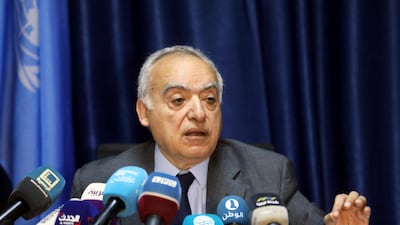The UN Security Council on Monday renewed its authorisation of an EU mission to combat arms smuggling off Libya's coast, amid calls for tougher action to cut the flow of weapons.
The council voted unanimously to extend the work of Operation Sophia until June 2020.
It was meeting more than two months after the forces of Field Marshal Khalifa Haftar launched an offensive to seize Tripoli, the seat of the UN-recognised government.
Germany told the council that arms supplies delivered in breach of the UN embargo were the main obstacle to ending the fighting in Tripoli and resuming talks.
"A seemingly unlimited arms supply fuels the erroneous belief in the military solution to the conflict and contributes to the unwillingness of actors to agree on a ceasefire and resume a political process," Germany's deputy UN ambassador, Juergen Schulz, told the council.
"It is time to redouble our efforts, to assume our responsibility and find ways to finally implement the arms embargo effectively."
France said that upholding the embargo was a priority "now more than ever", while Britain warned that the weapons flow was harming prospects for a ceasefire.
Belgium and South Africa expressed similar concerns.
The UN resolution allows EU vessels to inspect ships in the Mediterranean suspected of carrying weapons.
But the bloc suspended naval patrols in March, a month before Field Marshal Haftar's offensive began, meaning suspicious ships are now being tracked from the air.
EU foreign policy chief Federica Mogherini has urged European countries to send warships back to the Mediterranean to help enforce the embargo.
UN envoy Ghassan Salame last month called for immediate steps to stop arms exports to Libya, saying that without quick action, the country would descend into a civil war that could lead to partition.
In a report to the council, UN sanctions experts said that missiles fired at pro-Tripoli forces in April pointed to a drone attack that could involve a third party.
Hundreds of people have died and tens of thousands have been displaced in the offensive on Tripoli, while attempts to resume political talks have remained deadlocked.

